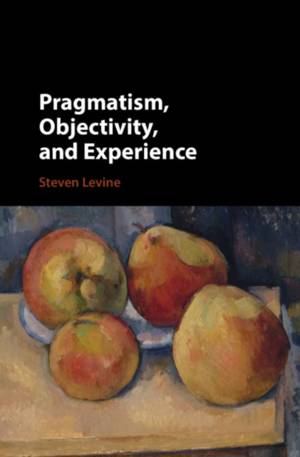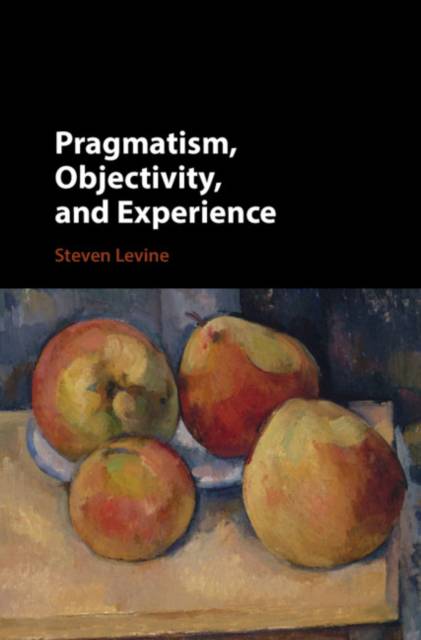
- Afhalen na 1 uur in een winkel met voorraad
- Gratis thuislevering in België vanaf € 30
- Ruim aanbod met 7 miljoen producten
- Afhalen na 1 uur in een winkel met voorraad
- Gratis thuislevering in België vanaf € 30
- Ruim aanbod met 7 miljoen producten
Zoeken
Omschrijving
In this book Steven Levine explores the relation between objectivity and experience from a pragmatic point of view. Like many new pragmatists he aims to rehabilitate objectivity in the wake of Richard Rorty's rejection of the concept. But he challenges the idea, put forward by pragmatists like Robert Brandom, that objectivity is best rehabilitated in communicative-theoretic terms - namely, in terms that can be cashed out by capacities that agents gain through linguistic communication. Levine proposes instead that objectivity is best understood in experiential-theoretic terms. He explains how, in order to meet the aims of the new pragmatists, we need to do more than see objectivity as a norm of rationality embedded in our social-linguistic practices; we also need to see it as emergent from our experiential interaction with the world. Innovative and carefully argued, this book redeems and re-actualizes for contemporary philosophy a key insight developed by the classical pragmatists.
Specificaties
Betrokkenen
- Auteur(s):
- Uitgeverij:
Inhoud
- Aantal bladzijden:
- 270
- Taal:
- Engels
Eigenschappen
- Productcode (EAN):
- 9781108422895
- Verschijningsdatum:
- 14/03/2019
- Uitvoering:
- Hardcover
- Formaat:
- Genaaid
- Afmetingen:
- 162 mm x 237 mm
- Gewicht:
- 498 g

Alleen bij Standaard Boekhandel
+ 251 punten op je klantenkaart van Standaard Boekhandel
Beoordelingen
We publiceren alleen reviews die voldoen aan de voorwaarden voor reviews. Bekijk onze voorwaarden voor reviews.











